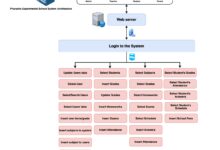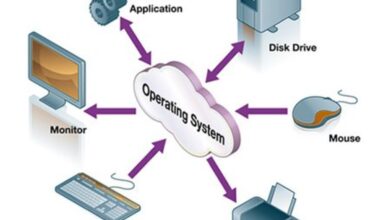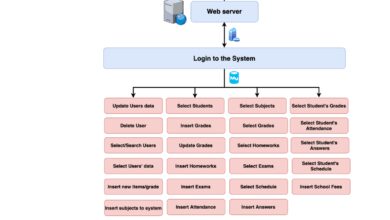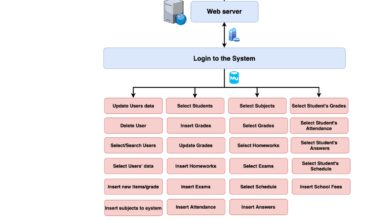Systems manager: Systems Manager: 7 Powerful Roles That Transform IT Operations
If you’ve ever wondered who’s behind the seamless flow of technology in modern organizations, meet the systems manager—a pivotal force driving efficiency, security, and innovation across IT infrastructures.
What Is a Systems Manager?

A systems manager is a key professional responsible for overseeing, maintaining, and optimizing an organization’s IT systems. This includes everything from servers and networks to software applications and cloud platforms. Their role ensures that technology aligns with business goals while maintaining reliability, performance, and security.
Core Definition and Scope
The term ‘systems manager’ may vary slightly depending on the industry or company size, but at its core, it refers to someone who manages complex technological ecosystems. According to the U.S. Bureau of Labor Statistics, these professionals plan, coordinate, and direct research and design efforts for computer systems within an organization.
systems manager – Systems manager menjadi aspek penting yang dibahas di sini.
- Responsible for both hardware and software integration
- Acts as a bridge between technical teams and executive leadership
- Ensures system availability, scalability, and disaster recovery readiness
This role often overlaps with titles like IT manager, infrastructure manager, or technology operations lead, but the focus remains on holistic system performance.
Evolution of the Role Over Time
Originally rooted in mainframe administration during the 1960s and 70s, the systems manager has evolved dramatically. With the rise of distributed computing, client-server models, and now cloud-native architectures, their responsibilities have expanded far beyond basic maintenance.
Today’s systems manager must understand not only traditional on-premise environments but also hybrid and multi-cloud deployments. The shift toward DevOps, automation, and AI-driven monitoring tools has redefined what it means to manage systems effectively.
systems manager – Systems manager menjadi aspek penting yang dibahas di sini.
“The modern systems manager isn’t just keeping lights on—they’re enabling digital transformation.” — Tech Leadership Journal, 2023
Key Responsibilities of a Systems Manager
The day-to-day duties of a systems manager are diverse and dynamic, shaped by organizational needs, industry standards, and technological trends. They serve as both strategic planners and hands-on troubleshooters.
Infrastructure Planning and Deployment
One of the primary functions of a systems manager is designing and implementing IT infrastructure. This includes selecting appropriate hardware, configuring network topologies, and deploying operating systems across enterprise environments.
- Conducting needs assessments before new system rollouts
- Overseeing virtualization platforms like VMware or Hyper-V
- Integrating cloud services such as AWS, Azure, or Google Cloud Platform
Effective planning reduces downtime, improves scalability, and supports future growth. A well-structured infrastructure allows businesses to respond quickly to market changes.
systems manager – Systems manager menjadi aspek penting yang dibahas di sini.
System Monitoring and Performance Optimization
Once systems are live, continuous monitoring becomes essential. Systems managers use tools like Nagios, Zabbix, Datadog, or Prometheus to track server health, application response times, and resource utilization.
They analyze performance metrics to identify bottlenecks, optimize configurations, and prevent outages. For example, if a database server shows high CPU usage during peak hours, the systems manager might recommend indexing improvements, query optimization, or horizontal scaling.
- Setting up real-time alerts for critical failures
- Conducting regular performance audits
- Implementing load balancing and caching strategies
This proactive approach ensures that users experience minimal latency and maximum uptime.
systems manager – Systems manager menjadi aspek penting yang dibahas di sini.
Security Management and Compliance
In an era of increasing cyber threats, systems managers play a vital role in safeguarding organizational data. They implement firewalls, intrusion detection systems (IDS), endpoint protection, and encryption protocols to protect sensitive information.
Additionally, they ensure compliance with regulations such as GDPR, HIPAA, or PCI-DSS, depending on the industry. Regular vulnerability assessments, patch management, and security audits fall under their purview.
- Enforcing least-privilege access controls
- Managing identity and access management (IAM) systems
- Leading incident response efforts during breaches
According to a report by Cisco’s 2023 Cybersecurity Report, organizations with dedicated systems management teams experience 40% fewer successful attacks.
systems manager – Systems manager menjadi aspek penting yang dibahas di sini.
Essential Skills for a Successful Systems Manager
Becoming an effective systems manager requires a blend of technical expertise, leadership ability, and business acumen. It’s not enough to know how to fix a server—today’s systems manager must anticipate problems, lead teams, and align technology with strategic objectives.
Technical Proficiency Across Platforms
A systems manager must be fluent in multiple operating systems, including Windows Server, Linux distributions (e.g., Red Hat, Ubuntu), and Unix variants. They should also understand networking fundamentals such as TCP/IP, DNS, DHCP, VLANs, and routing protocols.
- Expertise in scripting languages like PowerShell, Bash, or Python for automation
- Familiarity with containerization (Docker, Kubernetes) and CI/CD pipelines
- Knowledge of database management systems (MySQL, PostgreSQL, SQL Server)
These technical skills enable them to troubleshoot issues, automate repetitive tasks, and integrate disparate systems into a cohesive whole.
systems manager – Systems manager menjadi aspek penting yang dibahas di sini.
Leadership and Team Coordination
Unlike individual contributors, systems managers often lead teams of system administrators, network engineers, and support staff. Strong leadership skills are crucial for setting priorities, delegating tasks, and fostering collaboration.
They must communicate clearly with both technical and non-technical stakeholders, translating complex IT concepts into business terms. Conflict resolution, motivation, and performance evaluation are part of their managerial toolkit.
- Conducting regular team meetings and status updates
- Mentoring junior staff and supporting professional development
- Aligning team goals with departmental KPIs
Effective leadership directly impacts team productivity and job satisfaction.
systems manager – Systems manager menjadi aspek penting yang dibahas di sini.
Problem-Solving and Decision-Making Abilities
When systems fail, the systems manager is often the first called upon to resolve the issue. This requires sharp analytical thinking, calm under pressure, and the ability to make quick, informed decisions.
For instance, during a sudden outage, they must rapidly assess whether the root cause lies in hardware failure, software bugs, network congestion, or external attacks. Using diagnostic tools and logs, they isolate the problem and deploy corrective actions.
- Applying structured troubleshooting methodologies (e.g., ITIL framework)
- Using root cause analysis (RCA) to prevent recurrence
- Balancing short-term fixes with long-term solutions
These skills are especially valuable during crisis situations where downtime can cost thousands per minute.
systems manager – Systems manager menjadi aspek penting yang dibahas di sini.
Systems Manager vs. Other IT Roles: Understanding the Differences
While the title ‘systems manager’ may sound similar to other IT positions, there are distinct differences in scope, authority, and responsibility. Clarifying these distinctions helps organizations assign roles more effectively and aids professionals in career planning.
Systems Manager vs. System Administrator
A system administrator focuses on the hands-on maintenance of servers, user accounts, and day-to-day operations. They install software, apply patches, monitor logs, and respond to tickets.
In contrast, a systems manager oversees the broader picture. They define policies, plan upgrades, allocate budgets, and evaluate new technologies. While a sysadmin might configure a single server, the systems manager designs the entire server farm architecture.
systems manager – Systems manager menjadi aspek penting yang dibahas di sini.
- System administrators execute; systems managers strategize
- Administrators report to managers in most organizational hierarchies
- Managers handle vendor negotiations and procurement decisions
The distinction is akin to that between a construction worker and a project manager—both essential, but operating at different levels.
Systems Manager vs. Network Manager
Network managers specialize in data communication systems—routers, switches, firewalls, and WAN/LAN configurations. Their primary concern is connectivity, bandwidth, and network security.
Systems managers, while knowledgeable about networking, focus more on computing resources, storage, and application performance. However, in smaller organizations, one person may wear both hats.
systems manager – Systems manager menjadi aspek penting yang dibahas di sini.
- Network managers prioritize traffic flow and latency
- Systems managers prioritize server uptime and resource allocation
- Collaboration between the two is critical for end-to-end performance
In enterprise settings, these roles often work side by side within the same IT department.
Systems Manager vs. IT Director
The IT director holds a higher-level executive position, responsible for the entire IT function, including budgeting, strategic planning, and alignment with corporate goals. They may oversee multiple managers, including systems, network, and security managers.
A systems manager typically reports to the IT director or CIO and focuses on operational excellence within their domain. While the IT director sets the vision, the systems manager executes it within the systems landscape.
systems manager – Systems manager menjadi aspek penting yang dibahas di sini.
- IT directors engage with C-suite executives
- Systems managers interact primarily with technical teams
- Directors influence long-term roadmaps; managers handle mid-term implementation
Advancement from systems manager to IT director is a common career trajectory for experienced professionals.
Tools and Technologies Used by Systems Managers
To manage complex environments efficiently, systems managers rely on a wide array of tools that automate tasks, enhance visibility, and improve response times. Mastery of these tools is essential for modern IT leadership.
Monitoring and Alerting Platforms
Real-time monitoring is non-negotiable in today’s always-on digital world. Tools like Datadog, Nagios, and Zabbix provide dashboards that display system health metrics across servers, databases, and applications.
systems manager – Systems manager menjadi aspek penting yang dibahas di sini.
- Track CPU, memory, disk I/O, and network usage
- Set custom thresholds for alerting (e.g., disk usage >90%)
- Visualize trends over time for capacity planning
These platforms help detect anomalies before they escalate into outages, enabling proactive maintenance.
Configuration Management and Automation Tools
Manual configuration of hundreds or thousands of servers is impractical. That’s where automation tools like Ansible, Puppet, Chef, and SaltStack come in. They allow systems managers to define infrastructure as code (IaC), ensuring consistency and repeatability.
For example, Ansible playbooks can automatically deploy web servers with predefined security settings, reducing human error and speeding up deployment cycles.
systems manager – Systems manager menjadi aspek penting yang dibahas di sini.
- Enforce standardized configurations across environments
- Automate patching and software updates
- Integrate with version control systems like Git
Automation not only saves time but also enhances compliance and audit readiness.
Cloud Management and Virtualization Solutions
With the majority of enterprises adopting cloud computing, systems managers must be proficient in cloud management platforms. AWS Management Console, Azure Portal, and Google Cloud Console offer centralized control over virtual machines, storage buckets, and networking rules.
Additionally, virtualization technologies like VMware vSphere, Microsoft Hyper-V, and KVM enable efficient utilization of physical hardware through virtual machines (VMs).
systems manager – Systems manager menjadi aspek penting yang dibahas di sini.
- Create and manage VM templates for rapid provisioning
- Implement resource pools and quotas to prevent overuse
- Use cloud cost optimization tools to monitor spending
These capabilities are critical for maintaining agility and cost-efficiency in hybrid IT environments.
Challenges Faced by Systems Managers Today
Despite the advancements in technology, systems managers face numerous challenges that test their adaptability, resilience, and technical depth. These obstacles stem from rapid innovation, evolving threats, and organizational pressures.
Managing Hybrid and Multi-Cloud Environments
Many organizations now operate in hybrid setups—combining on-premise data centers with public cloud services. This complexity increases the difficulty of monitoring, securing, and optimizing systems across different platforms.
systems manager – Systems manager menjadi aspek penting yang dibahas di sini.
Each cloud provider has its own APIs, management tools, and pricing models. Ensuring seamless integration and consistent performance across environments requires deep expertise and careful planning.
- Data sovereignty and latency issues in geographically distributed clouds
- Lack of unified monitoring across platforms
- Difficulty in tracking and controlling cloud costs
Solutions like multi-cloud management platforms (e.g., VMware Tanzu, Red Hat OpenShift) are emerging to address these challenges.
Cybersecurity Threats and Zero-Day Vulnerabilities
The threat landscape is more dangerous than ever. Ransomware, phishing, supply chain attacks, and zero-day exploits target vulnerabilities in software and human behavior alike.
systems manager – Systems manager menjadi aspek penting yang dibahas di sini.
Systems managers must stay ahead of these threats by applying patches promptly, conducting penetration tests, and educating users. However, the sheer volume of updates and alerts can lead to alert fatigue and missed vulnerabilities.
- Short window between vulnerability disclosure and exploitation
- Insider threats and privileged account misuse
- Compliance with ever-changing regulatory requirements
Adopting a zero-trust security model and leveraging AI-powered threat detection can help mitigate risks.
Balancing Innovation with Stability
Business leaders demand innovation—faster deployments, new features, digital transformation. Yet, systems managers are tasked with maintaining stability, uptime, and reliability.
systems manager – Systems manager menjadi aspek penting yang dibahas di sini.
This tension creates a constant balancing act. Introducing new technologies like AI, blockchain, or edge computing can improve efficiency but may introduce untested risks.
- Pressure to adopt DevOps without adequate training or tooling
- Legacy systems that resist modernization
- Resistance to change from internal teams
Successful systems managers navigate this by implementing change management frameworks and phased rollouts.
Career Path and Advancement Opportunities for Systems Managers
The role of systems manager is not a dead-end job—it’s a launchpad for higher leadership positions in technology. With experience, certifications, and strategic thinking, professionals can climb the corporate ladder or pivot into specialized domains.
systems manager – Systems manager menjadi aspek penting yang dibahas di sini.
Typical Career Progression
Most systems managers begin their careers as system administrators, network technicians, or help desk support staff. After gaining several years of hands-on experience, they move into supervisory roles.
- Junior System Administrator → Senior Admin → Systems Manager
- IT Support Specialist → Team Lead → Operations Manager
- Direct entry via IT management programs or military tech roles
From systems manager, the next steps often include IT director, chief information officer (CIO), or VP of Technology.
Relevant Certifications and Training
Professional certifications validate expertise and enhance career prospects. Some of the most respected credentials for systems managers include:
systems manager – Systems manager menjadi aspek penting yang dibahas di sini.
- CompTIA Linux+ and CompTIA CASP for foundational and advanced skills
- Cisco CCNP and VMware VCP for networking and virtualization
- AWS Certified Solutions Architect and Microsoft Azure Administrator for cloud proficiency
- PMP (Project Management Professional) for leadership and project execution
Continuous learning through online courses, bootcamps, and vendor training keeps systems managers competitive.
Salary Expectations and Job Outlook
According to the U.S. Bureau of Labor Statistics, the median annual wage for computer and information systems managers was $164,600 in May 2023. Salaries vary based on location, industry, and experience level.
- Entry-level systems managers: $90,000 – $120,000
- Mid-career professionals: $120,000 – $160,000
- Senior or enterprise-level roles: $160,000 – $220,000+
The job outlook is strong, with a projected growth rate of 10% from 2022 to 2032—much faster than average—driven by increasing reliance on IT and cybersecurity needs.
systems manager – Systems manager menjadi aspek penting yang dibahas di sini.
Best Practices for Effective Systems Management
Excellence in systems management doesn’t happen by accident. It requires discipline, foresight, and adherence to proven methodologies. The following best practices help systems managers maintain high performance and minimize risk.
Implement Proactive Maintenance Schedules
Waiting for systems to fail before acting is a recipe for disaster. Instead, successful systems managers schedule regular maintenance windows for updates, backups, and hardware checks.
- Apply security patches within 48 hours of release when critical
- Rotate backup media and test restoration procedures monthly
- Perform hardware diagnostics and firmware updates quarterly
Proactive maintenance reduces unplanned downtime and extends the lifespan of equipment.
systems manager – Systems manager menjadi aspek penting yang dibahas di sini.
Document Everything
Comprehensive documentation is the backbone of reliable IT operations. It includes network diagrams, server configurations, user permissions, and incident reports.
When a new team member joins or a crisis occurs, clear documentation enables faster onboarding and troubleshooting. Tools like Confluence, Notion, or dedicated IT documentation software help centralize this knowledge.
- Maintain up-to-date runbooks for common procedures
- Record change management logs for audit trails
- Use version control for configuration files
Well-documented systems are easier to secure, scale, and transfer.
systems manager – Systems manager menjadi aspek penting yang dibahas di sini.
Adopt ITIL and DevOps Frameworks
Frameworks like ITIL (Information Technology Infrastructure Library) provide structured approaches to service management, including incident, problem, change, and release management.
Meanwhile, DevOps promotes collaboration between development and operations teams, emphasizing automation, continuous integration, and rapid feedback loops.
- Use ITIL for formalizing support processes and SLAs
- Apply DevOps principles to accelerate deployment cycles
- Combine both for balanced agility and stability
Organizations that adopt these frameworks report higher system availability and customer satisfaction.
systems manager – Systems manager menjadi aspek penting yang dibahas di sini.
What does a systems manager do?
A systems manager oversees the design, implementation, and maintenance of an organization’s IT infrastructure. They ensure systems are secure, efficient, and aligned with business goals, managing everything from servers and networks to cloud platforms and cybersecurity protocols.
How do I become a systems manager?
systems manager – Systems manager menjadi aspek penting yang dibahas di sini.
To become a systems manager, start with a degree in computer science or IT, gain experience in system administration or network support, earn relevant certifications (like CompTIA, AWS, or PMP), and develop leadership and problem-solving skills. Most roles require 5+ years of technical experience.
Is systems manager a high-paying job?
Yes, systems manager is a high-paying role. The median salary in the U.S. exceeds $160,000 annually, with senior positions reaching over $200,000. Salaries vary by location, industry, and level of responsibility.
systems manager – Systems manager menjadi aspek penting yang dibahas di sini.
What tools do systems managers use?
Systems managers use tools like Nagios, Zabbix, and Datadog for monitoring; Ansible, Puppet, and Chef for automation; VMware and Hyper-V for virtualization; and AWS, Azure, and GCP for cloud management. Documentation and collaboration tools like Confluence are also essential.
What’s the difference between a systems manager and an IT manager?
systems manager – Systems manager menjadi aspek penting yang dibahas di sini.
While the terms are sometimes used interchangeably, a systems manager typically focuses on technical infrastructure (servers, storage, OS), whereas an IT manager may have broader responsibilities, including help desk, software licensing, and overall IT strategy. In larger organizations, systems managers report to IT managers.
In today’s digital-first world, the systems manager plays a mission-critical role in ensuring that technology serves the organization effectively. From designing resilient infrastructures to defending against cyber threats, their expertise keeps businesses running smoothly. With the right skills, tools, and mindset, systems managers not only maintain systems—they transform them into strategic assets. As technology continues to evolve, so too will the importance of this dynamic and rewarding profession.
systems manager – Systems manager menjadi aspek penting yang dibahas di sini.
Further Reading:









